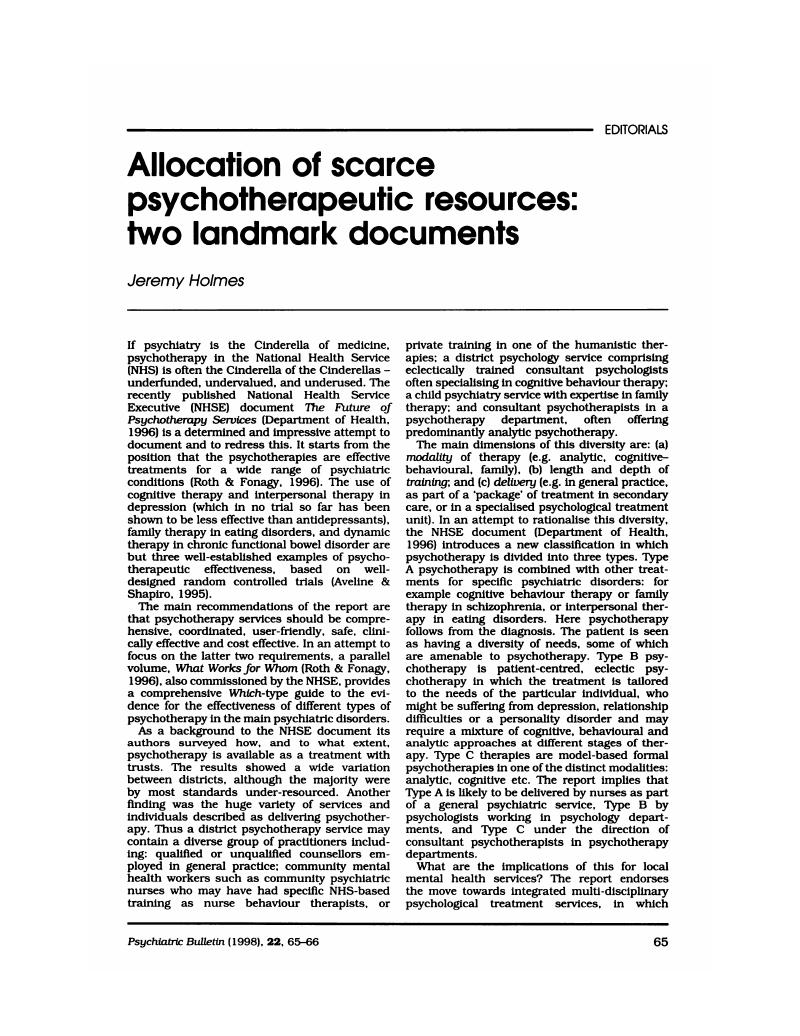No CrossRef data available.
Article contents
Allocation of scarce psychotherapeutic resources: two landmark documents
Published online by Cambridge University Press: 02 January 2018
Abstract
An abstract is not available for this content so a preview has been provided. As you have access to this content, a full PDF is available via the ‘Save PDF’ action button.

- Type
- Editorials
- Information
- Creative Commons
- This is an Open Access article, distributed under the terms of the Creative Commons Attribution (CC-BY) license (http://creativecommons.org/licenses/by/4.0/), which permits unrestricted re-use, distribution, and reproduction in any medium, provided the original work is properly cited.
- Copyright
- Copyright © 1998 The Royal College of Psychiatrists
References
Aveline, M. & Shapiro, D. (1995) Research Foundations for Psychotherapy Practice. Chichester Wiley.Google Scholar
Department of Health (1996) NHS Psychotherapy Services in England: Review of Strategic Policy. London: HMSO.Google Scholar
Holmes, J. (1995) Supportive psychotherapy: the search for positive meanings. British Journal of Psychiatry, 167, 439–445.CrossRefGoogle ScholarPubMed
Paul, G. L. (1967) Strategy of outcome research in psychotherapy. Journal of Counselling Psychology, 31, 109–118.Google ScholarPubMed
Roth, A. & Fonagy, P. (1996) What Works for Whom? A Critical Review of Psychotherapy Research. New York: Guilford Press.Google Scholar



eLetters
No eLetters have been published for this article.